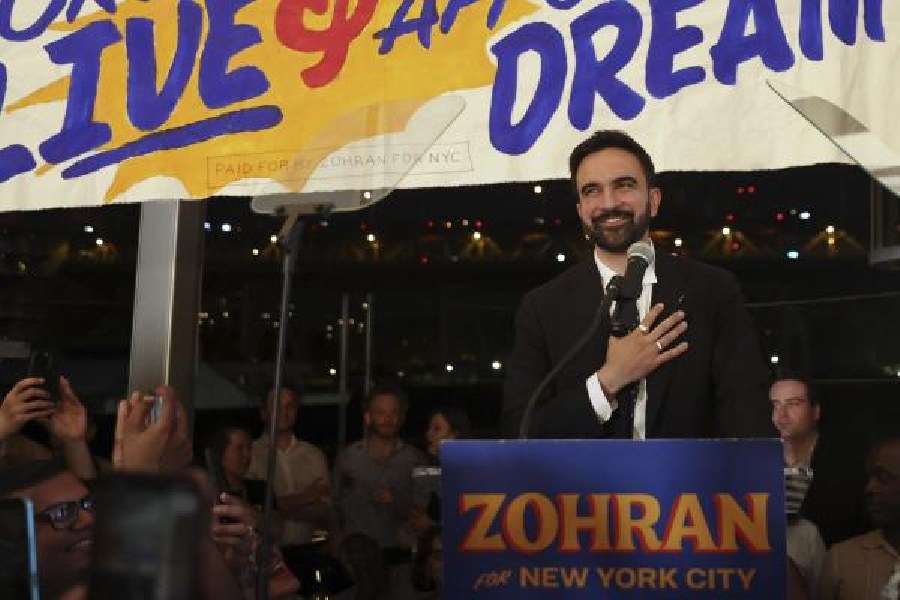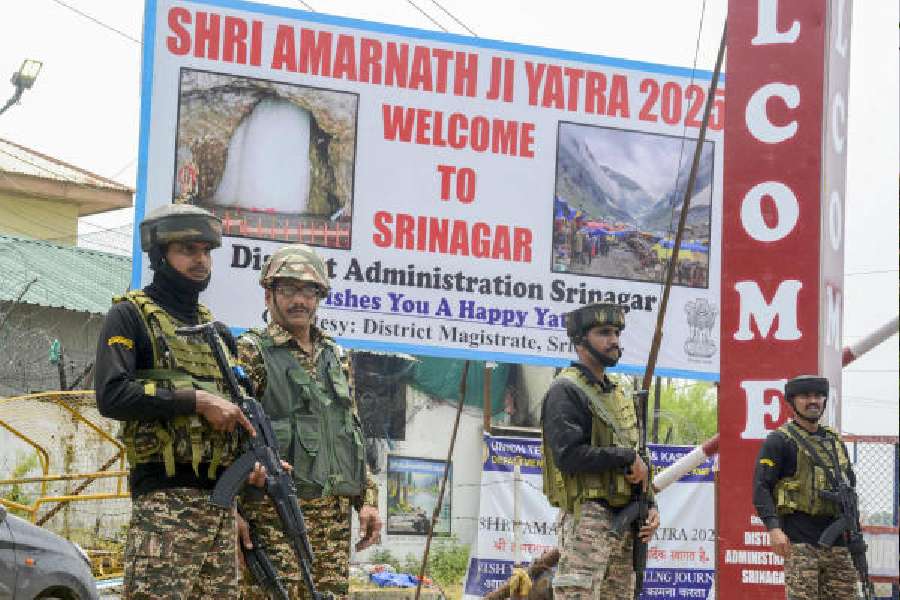 |
| Elena Dementieva after losing her second Grand Slam final of the year. (Reuters) |
The butterflies were understandable for 19-year-old Svetlana Kuznetsova, playing in a Grand Slam final for the first time and under the prime-time lights.
But once she dispensed with the nerves on Saturday night ? she had only four unforced errors to lose her serve in the first game of the US Open final ? Kuznetsova began unfurling merciless groundstrokes with the steely verve of a veteran, pummelling her listless Russian countrywoman, Elena Dementieva.
Kuznetsova emerged in 74 quick minutes from the first all-Russian women?s final here as the first Open champion from that country. With 34 winners helping her overcome 35 unforced errors, Kuznetsova dismantled the ailing Dementieva 6-3, 7-5, becoming the third straight woman?s champion in a Grand Slam tournament this year from Russia.
But even as Kuznetsova delighted in her victory and Dementieva, 22, suffered from her second straight-set disappointment in a Grand Slam final this season, the two young women from Russia displayed poise and grace in the awards ceremony. With eloquent English, each commemorated the day by recalling the terrorist acts of September 11, 2001, in the United States and September 3, 2004, at a school in Beslan, Russia.
Kuznetsova dedicated her victory to the victims of both tragedies. ?I just hope we?re going to be together and it?s never going to happen again,? she said.
Dementieva could not dedicate a victory, but she did ask for a moment of silence that stopped the crowd on a night that had little emotion until then.
?Even that I lost today, it?s a great day as a tennis player, but it?s a day to remember September 11, 2001, and September 1, 2004; we lost hundreds of children in Russia,? Dementieva said, referring to the siege in Beslan that resulted two days later in hundreds of deaths. ?I want you guys to do everything possible to stay together and battle terrorism and have a moment of silence one more time.?
The words from both players put a solemn ending to a night of personal achievement for Kuznetsova. Her doubles partner last year, Martina Navratilova, was in her friends? box. Kuznetsova recalled how Navratilova had given her this advice before taking the court: ?I did it when I was young in my first final, so you can do it too.?
It was the first time in the Open era that none of the top four seeded women reached the final in New York, and Kuznetsova, seeded ninth, took advantage in her first try. She covered her mouth in disbelief when she heard she had won $1 million.
Even as Alan Schwartz, chairman of the US Tennis Association, had difficulty pronouncing her name before presenting her the trophy, Kuznetsova was unfazed. She had proven she belonged.
Two shots into the second game, Kuznetsova turned the aggressor, whipping a forehand winner that led to her service break of Dementieva. In the first set, Kuznetsova dictated play, blasting 17 winners.
Dementieva put up more of a fight than in her 1-6, 2-6 loss to Anastasia Myskina in the French Open in June. But a day after her three-set victory over Jennifer Capriati, Dementieva said she was slowed by a thigh injury sustained on Tuesday.
For the fourth time in six matches at the Open, Dementieva lost the first set, but this time she could not force a third set. Her serve registered as high as 103 mph but she also had four crucial double-faults in the second set. ?It?s all about my serve,? Dementieva said. ?I need to improve it if I want to win a Grand Slam.?
Even her forehand was unable to compensate for her weak serve. Kuznetsova pounced on the short second serves, coming up with 23 forehand winners.
Kuznetsova is built with the leg strength befitting someone whose mother was a six-time world champion cyclist and whose father coached five Olympic and world champion cyclists. Her brother, Nikolai, won a silver in cycling in the 1996 Olympics.
Kuznetsova recalled last week how she was last in her first cycling race and bored in her second, so she switched to tennis. In 1999, she moved from St Petersburg to Barcelona to train at the Sanchez-Casals Academy, where Arantxa Sanchez Vicario became her mentor and doubles partner.
She was playing absolutely great tennis today; it?s not about my injury,? Dementieva said, although she added: ?It really affected my game. When you play a Grand Slam, you don?t think about your injury, you want to win no matter what.?
Dementieva said before the semi-finals that she had preferred not to play another Russian, saying they can always play in Moscow. But the Americans were not so obliging.
With Serena and Venus Williams having departed, Capriati having left in tears of despair after another failed bid to reach the final and Lindsay Davenport limping out of the Open for perhaps the final time, the court was left to the Russians.
Their domination has been steady and wide-reaching, including the Wimbledon winner, Maria Sharapova, as well.
Last year, Justine Henin-Hardenne beat Kim Clijsters in a prime-time match-up of Belgians that drew a 2.5 rating, down 52 percent from the previous year, when the Williams sisters met for the second straight year. When Venus toppled Serena in 2001, the first prime-time final for the women, the rating was 6.8.
?I don?t believe we need to look at ratings in a vacuum year to year or match to match,? said Arlen Kantarian, the chief executive of the US Tennis Association. ?We have to create new personalities.?
Kuznetsova emerged with a bright and bubbly smile and an unforgiving forehand.










